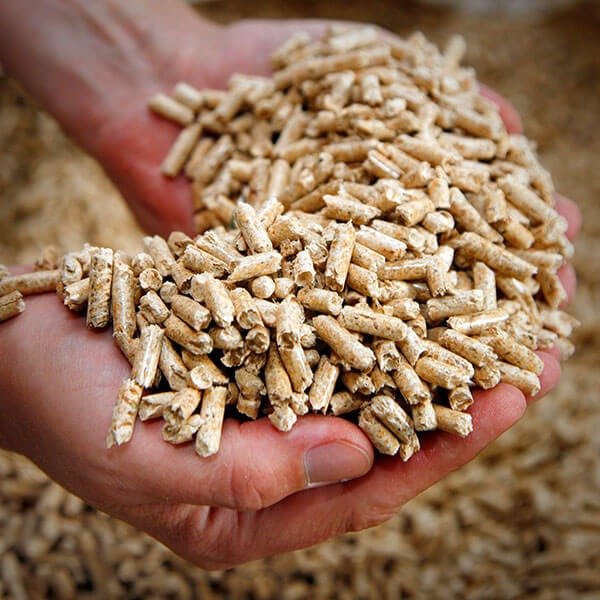
Top Reasons Why Wood Pellets are the Ultimate Heating Solution
In the realm of heating solutions, wood pellets have emerged as a versatile and sustainable option that is gaining popularity among homeowners and businesses alike. These small, cylindrical pellets, typically made from compacted sawdust or other wood waste, offer several advantages over traditional heating methods like oil, gas, or electric systems. Let’s delve into the top reasons why wood pellets are considered the ultimate heating solution. Buy wood pellet
1. Environmentally Friendly
One of the most compelling reasons to opt for wood pellets is their eco-friendly nature. Unlike fossil fuels such as oil or gas, wood pellets are derived from renewable biomass sources. Burning wood pellets releases carbon dioxide, but it’s offset by the carbon dioxide absorbed by the trees during their growth. This makes wood pellet heating carbon-neutral, contributing minimally to greenhouse gas emissions and helping combat climate change.
2. Cost-Effective
Wood pellets are often more cost-effective compared to traditional heating fuels like oil or electricity. While the initial investment in a pellet stove or boiler may be higher, the long-term savings can be substantial. Wood pellets tend to be cheaper per unit of heat produced, offering significant savings on heating bills over time. Additionally, wood pellet prices are generally more stable than fossil fuel prices, reducing the risk of sudden spikes in heating costs.
3. Energy Efficiency
Wood pellet stoves and boilers boast high levels of energy efficiency, converting a large portion of the fuel’s energy content into heat. Modern pellet appliances are designed with advanced combustion technology and efficient heat exchangers, maximizing heat output while minimizing fuel consumption. This means that less fuel is needed to achieve the same level of warmth compared to conventional heating systems, translating to lower energy bills and reduced environmental impact.
4. Clean Burning
Wood pellets burn cleanly and efficiently, producing minimal emissions and leaving behind little ash residue. Unlike traditional wood stoves, pellet stoves and boilers are equipped with sophisticated combustion systems that optimize air-to-fuel ratios and ensure complete combustion. As a result, pellet heating systems produce significantly fewer pollutants such as particulate matter, carbon monoxide, and volatile organic compounds, promoting better indoor air quality and reducing health risks associated with exposure to harmful combustion byproducts.
5. Convenience and Automation
Wood pellet heating offers unparalleled convenience and automation, making it an attractive option for busy homeowners. Pellet stoves and boilers can be equipped with programmable thermostats and automatic ignition systems, allowing users to set desired temperatures and schedules with ease. Some models even feature remote control capabilities, enabling users to adjust heating settings from anywhere using a smartphone app. Additionally, bulk storage options are available for wood pellets, eliminating the need for frequent refueling and simplifying maintenance tasks.
6. Renewable Energy Source
Wood pellets are derived from sustainably managed forests and wood processing residues, making them a truly renewable energy source. Unlike fossil fuels, which are finite and non-renewable, biomass fuels like wood pellets can be continuously replenished through responsible forestry practices and efficient waste utilization. By investing in wood pellet heating, consumers can support the growth of the biomass energy sector and contribute to the development of a more sustainable energy infrastructure.
7. Versatility and Flexibility
Wood pellets can be used for a variety of heating applications, ranging from residential homes to commercial buildings, industrial facilities, and even agricultural operations. Pellet stoves come in a range of sizes and styles to suit different heating needs and aesthetic preferences, while pellet boilers can be integrated into existing heating systems for seamless integration. Additionally, wood pellets can be sourced locally in many regions, reducing transportation emissions and supporting local economies.
8. Reduced Dependence on Fossil Fuels
By transitioning to wood pellet heating, consumers can reduce their dependence on fossil fuels and promote energy independence. With concerns about dwindling fossil fuel reserves and geopolitical instability surrounding oil and gas markets, investing in renewable energy sources like wood pellets offers a more secure and sustainable alternative. By diversifying energy sources and embracing cleaner, greener technologies, communities can enhance their resilience to external shocks and future-proof their heating infrastructure.
In conclusion, wood pellets represent a compelling heating solution that ticks all the boxes in terms of environmental sustainability, cost-effectiveness, energy efficiency, and convenience. With their clean-burning properties, renewable origins, and versatility, wood pellets are poised to play a significant role in the transition to a more sustainable energy future. Whether for residential, commercial, or industrial applications, wood pellet heating offers a viable pathway towards reducing carbon emissions, mitigating climate change, and building resilient communities.